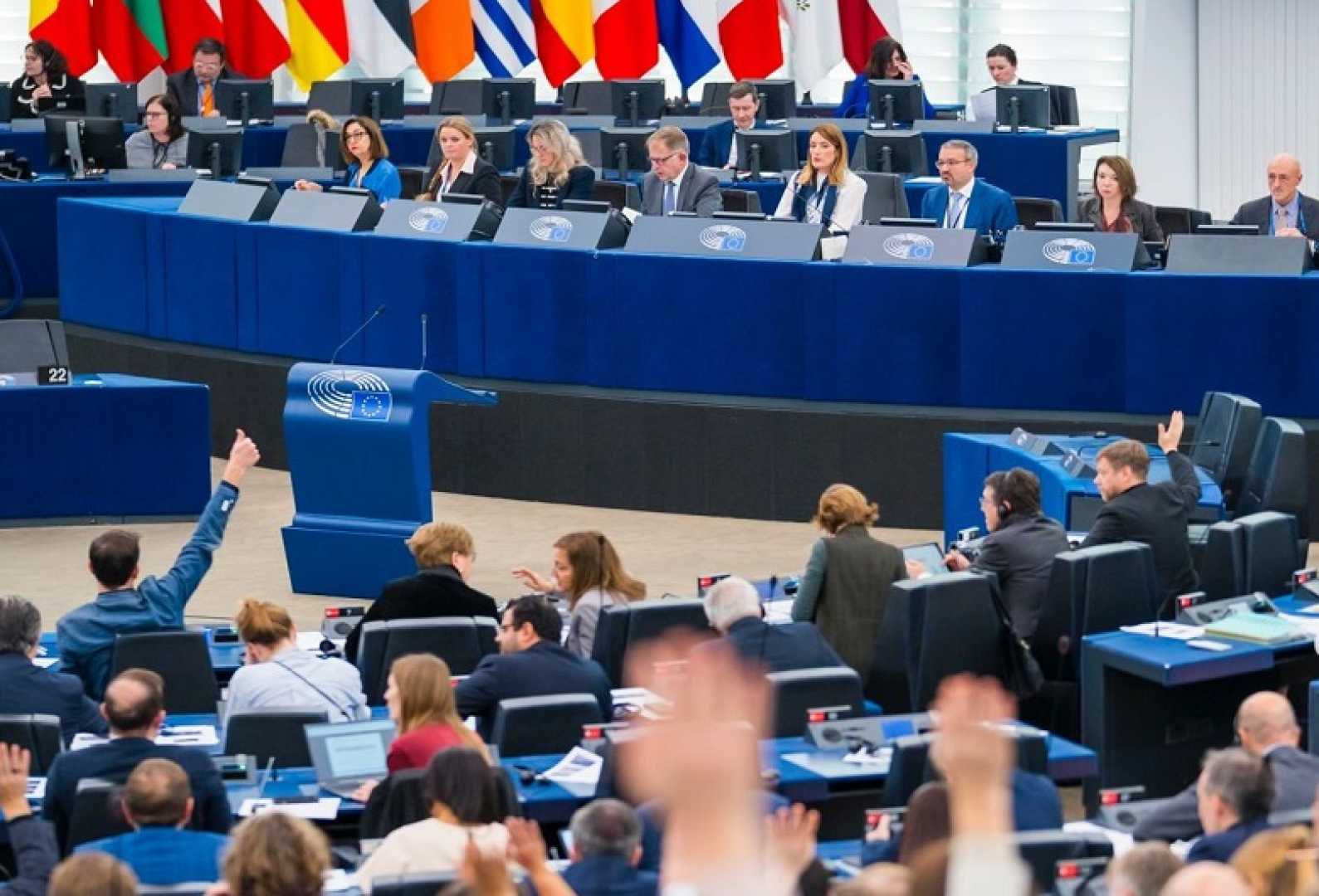Politics
Europe’s Center-Right Faces Crucial Decision Ahead of Parliament Vote

BRUSSELS — Europe’s center-right must make a major decision in the next two weeks regarding its strategy in the European Parliament: either dilute its ambitions and remain with traditional allies or collaborate with far-right parties.
Amid rising populism, centrist parties struggle to maintain their influence while pan-European groups in the Parliament face similar dilemmas. A recent failure to pass a significant law aimed at reducing bureaucratic obstacles illustrated the limited maneuverability of the center-right.
Bas Eickhout, co-chair of the Greens and a centrist ally of the European People's Party (EPP), stated, “The EPP still has the choice between working with the far right that wants to demolish Europe or a stable pro-European coalition.”
Last week, the EPP could not pass a bill intended to relax green reporting requirements after some center-left Members of European Parliament (MEPs) voted against their party’s line. The far-right Patriots for Europe (PPE) have urged the EPP to abandon traditional allies such as the center-left Socialists and Democrats (S&D), the liberal Renew Europe group, and the Greens to form a partnership with them instead.
Pascale Piera, the Patriots lawmaker leading this bill preparation, suggested that some EPP members acknowledged their mistake in previously siding with the architects of the Green Deal. EU leadership insists on advancing the legislation quickly to demonstrate Brussels‘ ability to streamline processes for businesses and invigorate a faltering economy.
This crucial legislation debate compels the EPP to reconsider its adherence to the so-called cordon sanitaire — an unwritten rule against collaborating with far-right groups. Should the EPP choose to align with the far right, it could disrupt traditional political practices in Brussels.
Political factions within the Parliament are divided on this proposed simplification agenda. Right-wing groups propose substantial rollbacks of EU regulations, particularly environmental laws, which they argue hinder economic growth, while leftist factions strive to maintain the standards established during the previous legislative term.
The European Commission‘s simplification initiative aims to ease reporting burdens on companies tied to corporate sustainability and supply chain transparency, critical components of the European Green Deal. This marks the first in a series of proposals aimed at enhancing European competitiveness under Commission President Ursula von der Leyen, a prominent EPP figure.
In the weeks leading up to the failed Strasbourg vote, the EPP considered negotiations with right-wing and far-right groups to secure support. They aimed to draw backing from the Patriots, the far-right Europe of Sovereign Nations (ESN), and the right-wing European Conservatives and Reformists (ECR) to gain leverage with liberals and Socialists. Although negotiations succeeded in reducing demands from these groups, several Socialists ultimately declined to support the proposal.
Jörgen Warborn, lead EPP negotiator, expressed disappointment at the outcome, stating, “It’s now up to the Socialists to clarify their position.” The liberals and Social Democrats continue hoping the EPP will honor its traditional coalition with sufficient concessions to secure Socialist support.
Socialist negotiator René Repasi noted, “There has to be a text put to a vote that can have a majority in the plenary, and the more reliable majority is EPP with S&D, Renew, and the Greens.” The right-wing factions, however, anticipate a different outcome.
Piera argued that the law in its original format, negotiated with the far-right, still holds enough backing to pass, and expressed surprise at the EPP’s retreat from that initial proposal.
Andreas Rasche, a professor at the Copenhagen Business School, warned that leaning on the far right to secure legislation would establish a dangerous precedent for the EPP. “It would show a strategic direction for the EPP,” he said.
While the right-wing bloc may succeed in achieving consensus in Parliament, Repasi cautioned that changes may occur during negotiations with EU member states. He recalled that the last time the EPP collaborated with far-right factions to weaken an anti-deforestation bill, subsequent negotiations with EU leaders and the Parliament necessitated a backtrack.












